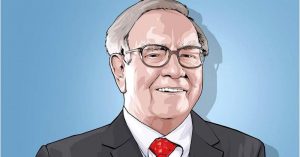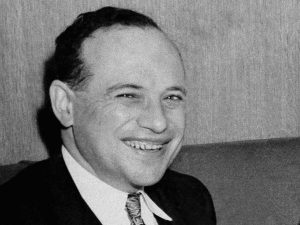Living A Financially Secure Life
You likely have a number of personal and professional goals. For example, you may want to start your own business one day. You might want to set up a college fund so that your children don’t have to worry about paying for their education. Or, perhaps you’ve had your eye on a tropical vacation and want to save for it. Whatever your short or long term goals might be, financial planning can help. Financial planning involves being smart about your money so that you can reach your goals and deal with any unexpected financial burdens that may crop up along the way.

You are in charge of your own finances. That doesn’t mean you have to shoulder all of the responsibility, though. A financial planner is able to give you advice that helps put you on the right track during what can be a long journey.
Financial Planning Benefits You
With financial planning, you can set both personal and financial goals that make sense for your life and situation. A financial advisor takes a look at how much money you have, how much money you make, and other items like insurance and taxes. He or she will come up with a plan to help you reach your goals by addressing your financial weaknesses and building on your financial strengths. The planner helps turn your plan into reality and watches over how things are going. If you want to meet your goals and turn your dreams into a reality, a financial planner is a great place to start.
Could You Benefit From A Financial Planner?
Is working with a financial planner in your best interests? Many people do not have either the time or the knowledge to really delve into their finances and create a plan for change. You may know what you want but you may not be sure how to accomplish it. Working with a third party is a great way to see things through a new set of eyes. Not only that, but you likely have a lot going on. Sometimes it helps to have a financial expert making sure that everything is going according to plan. He or she can also give you a little nudge if you start to lose focus.
There are certain things that may prompt you to reach out to a financial planner. For example, perhaps you are concerned about retirement and do not feel you have put enough money away. Maybe you recently inherited some money and you aren’t sure what you should do with it. Or, maybe you are getting married or divorced and you need some advice on how to structure your finances as a result. Kids, illnesses or the loss of a job may also make a difference. In addition, a financial planner can help if you are caring for a dependent adult or dealing with a death in your family. There are so many topics that they can assist with.
Are All Financial Planners Created Equal?
They are not. In addition, someone can state that they are a financial planner but be more interested in getting you to buy financial products than looking out for your best interests. Real financial planners deal with more than just investments. Their services cover a variety of areas. Also, it is in your best interests to look for a certified financial planner, because these individuals are required to watch out for you.
Is There Regulation In The Financial Planning Field?
There is not. Someone can say that they are a financial planner but not go through regulation at the federal or provincial level. There are financial planners that may have to deal with regulation as it relates to taxes and insurance, but this regulation is not broad enough to cover everything that they do.
Certified financial planners, however, are subject to regulation. They must abide by a certain code of ethics in everything that they do.
Why Work With A Certified Financial Planner?
Certified financial planners are committed to working with their clients to ensure that they are financially healthy. These individuals typically study finance in college and have a degree to show their proficiency. In addition, to become certified, the planner normally has to take additional classes that the board has given their seal of approval to.
This is a very distinguished title to have. In order to become a certified financial planner, and to keep the license over time, individuals have to complete four different steps.
First, they have to take the test that awards them their certification. This test covers a lot of different areas, and it helps to ensure that the candidate has the background knowledge necessary to succeed. In addition, they have to work in the field for at least three years before they can call themselves a certified financial planner.
In addition, they have to agree to the certified financial planner’s code of ethics. If they do not follow this code, they may lose their certification and be subject to other penalties as well. Finally, they have to log at least thirty hours of education over the course of every two year period. The topics should involve financial planning as well as ethics.
These four areas are comprehensive. If someone has the title of certified financial planner, you can rest easy knowing that they have earned it and are able to give you great financial planning advice.
The Financial Planning Standards Council believes that it is in every individual’s best interests to work with a certified financial planner to manage their money. There are a few other certifications, like the Chartered Financial Consultant as well as the Personal Financial Specialist, that are also valuable and should be considered as well.
How Can I Find A Planner?
Talk to people that you know, like your coworkers and family members, to see if they have any recommendations for you. If you come up empty, think about consulting with an accountant, a banker or a lawyer; these individuals often work in some capacity with financial planners, so they should have names to give you.
You can also check with the Financial Planning Standards Council; they can direct you to a certified financial planner that lives near you. Look them up online. There is even a form to fill out where you can request that a financial planner contact you directly.
Other resources include the Better Business Bureau and the Certified Financial Planning Board. If you have a planner that you are considering working with, simply check them out to make sure they have a good reputation before you do business.
How Do I Know Which Financial Planner To Work With?
This is not a decision to take lightly. Just as you would take your time when selecting a doctor, you should take your time when selecting a financial planner. This is someone that you will be working with very closely. He or she should know what they are doing and be an honest, upstanding citizen committed to working hard on your behalf. You want a planner that wants to help you and see you succeed.
All planners are unique. Some work better with particular people; for example, the financial planner might specialize in working with small business owners. He or she might be well versed in retirement but not divorce, or vice versa. It is important to talk to a handful of planners prior to deciding which one you want to work with.
What Questions Should I Ask
Ask the planner to give you a written disclosure document. It will fill you in on most of what you need to know. However, it is always a good idea to also interview the planner and ask a few additional questions. Most planners will provide you with a free consultation.
You should find out what type of experience the planner has had in the field. Also, inquire about where they went to school and what they studied. Ask if they have any relevant licenses and inquire about the range of services the planner can provide you with. Ask him or her how they view financial planning and if there are any areas that they are proficient in.
Talk to the planner about their client base and if they have any requirements of their clients. Find out if they belong to any professional organizations. Ask the process involved in setting up a plan. Also, find out how he or she would help you. Finally, make sure to discuss any applicable fees as well as what you can expect to pay.
An interview is always a good idea because you can get a feel for what the planner is like. Does he seem honest? Do you think you can trust him? Do you think he wants what is best for you and is not just interested in selling you something?
What You Should Know About Full Disclosure
You have to be able to trust your financial planner and believe that he will do everything possible for you. Full disclosure is a part of trust; this means that you learn about what the planner has done in the past and how they have operated. They tell you where they have worked before, what they charge and other things that would be useful information to you.
How Is The Planner Compensated?
A planner may work solely on commission. He may also receive a commission but also charge a fee. For example, he may charge you to consult with you or put together your plan. A planner may also receive a salary from work or use the commissions they earn from you to mitigate the costs associated with helping you plan.









